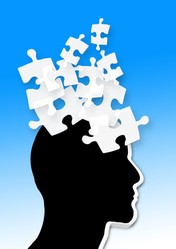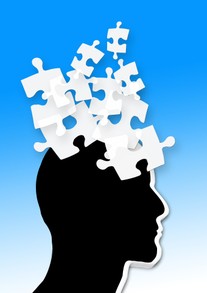This does convey a view of abnormality as a disease that strike unsuspecting, passive victims. This disease model of mental illness dominated early misconceptions of abnormal behavior, many of which developed within the medical field of psychiatry. Although popular during the early years of psychiatry, it was severely criticized by psychologists and psychiatrists alike.

The nature and assessment of mental disorders
by Brendon
Abnormal behavior could be viewed as the result of underlying mental disorders, however, these mental disorders are frequently compared to actual physical disorders.
These critics contended that the use of a disease analogy does not necessarily increase our understanding of psychologically trouble people and may even misrepresent their condition. Undue reliance on this perspective may result in two significant, undesirable effects. Firstly, it places undue emphasis on classification with a disregard for personal initiative and coping problems. Secondly, it tends to foster the belief that nearly all forms of abnormal behavior can be traced to a single underlying cause which will yield to a specific treatment.
The search for this underlying cause, or etiology, of a mental disorder is usually unproductive for the following reasons. Firstly, relatively few disorders are caused by one factor as a variety of events and conditions appear to contribute to the emergence of the abnormal behavior. This usually occurs in the purely medical context as knowing the etiology of a disease helps physicians both in treating it and eliminating the conditions that caused the condition. However, there is now a growing interest in accurate description of the behavior patterns that characterize mental disorders, including detailed analysis of their effect on the individual’s capacity to function effectively on a day-to-day basis. It is difficult to avoid the use of disease metaphors in discussing abnormal behavior though. For example, certain conditions such as the affective disorders and schizophrenia correspond reasonably well to may characteristics of the medical model. While the anxiety and phobic disorders and many developmental disorders do not.
In the psychological realm the term assessment is used rather than diagnosis in describing the process of evaluating mental disorders. Assessment is therefore a process of gathering information about clients that assist the clinician to make informal decisions.
Flexibility is essentially practiced as the clinician will have access to a wide range of options in considering what is best for the client. During the assessment stage, psychologists use extensive data gathered from many different sources. These may include interviews, structured psychological tests, inventories and questionnaires and direct behavioural observations which enables the clinician to characterize the nature and severity of the client’s condition effectively.
The psychological assessment does involve a limited extent of diagnostic labeling as diagnostic terminology was developed only to systemize observations of disturbed behaviour. But there is definitely reason to believe that a thorough psychological assessment in conjunction with a thorough classification system can be useful in generating appropriate treatment for a wide range of disorders.
You might also like
Are psychological assessments reliable?Find out how these assessments can be made reliable by considering the possib...
5 Suggestions To Help You Feel Better Right NowSome proven suggestions on how you can improve your mood quickly and with ve...













 The importance of using web analyticson 05/11/2019
The importance of using web analyticson 05/11/2019
 Are psychological assessments reliable?on 05/10/2016
Are psychological assessments reliable?on 05/10/2016



Comments
Brendon, Thank you for the helpful distinction between assessments and diagnoses. Your recognition of an underlying physical disorder to a mental disorder makes me think of "mad hatters" whose apparent madness was inspired by mercury poisoning suffered in the process of making caps and hats.